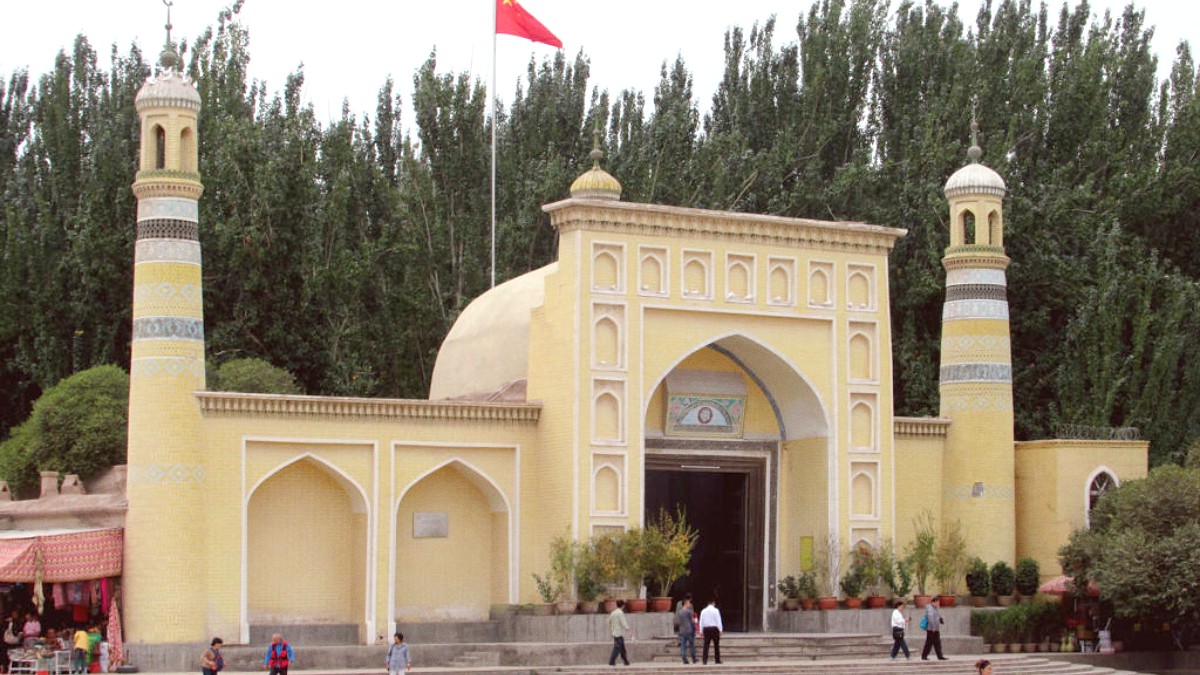
Xinjiang, China
Xinjiang features several protected areas, including parts of the Pamir Mountains and desert ecosystems. Conservation efforts mainly focus on desertification control, ecological restoration, and water management. Your visit should try to support these efforts by minimizing impact.
Waste management infrastructure in Kashgar develops, but recycling is not as widespread as in many Western countries. Minimize waste generation. Carry a Reusable water bottle to cut down on plastic. Use a reusable shopping bag. Dispose of waste properly in designated bins.
Kashgar is an oasis city, and water is a precious resource in this arid region. Be mindful of your water usage during your stay. Take shorter showers, reuse towels if possible, and report any leaks.
Cultural sensitivity has great significance in Kashgar, a region with a deep and distinct Uyghur culture and specific socio-political context. Your respectful interactions leave a good impression.
Support for maintaining local heritage.
Guidelines for positive engagement.
Guidelines for visiting sacred sites.
Awareness of sensitive topics and privacy.
Prioritize eating at local Uyghur restaurants rather than international chains. Shop at the Grand Bazaar and other local markets.
Browse Local StallsConsider tours from operators with ethical practices for responsible travel.
Explore G AdventuresYour travel choices have an influence on the local community and environment. Make informed decisions that align with sustainable practices.
Supporting local livelihoods directly.
Making responsible choices in a complex region.
Thoughts on donations.
Consider options that lessen your environmental impact.
Making conscious choices as a traveler contributes positively to Kashgar and its people.
Reduce waste and conserve water in this arid region. Every effort helps.
Engage with locals respectfully, observe customs, and choose your words carefully.
Direct your spending to local businesses and artisans. This benefits the community.
Your travel choices directly influence the local community's economy. This sustains livelihoods and helps preserve local culture.
Further guidelines for a mindful and beneficial visit to Kashgar, embracing environmental, cultural, and economic considerations.
Conscious choices lessen environmental impact.
Building positive interactions.
Directing your spending thoughtfully.
Choosing responsible tour experiences.
Reminder of central cultural considerations for your visit.
Always seek permission for photos of individuals. Respect their privacy and preferences.
Wear respectful clothing, especially in religious sites, to honor local customs.
Steer clear of sensitive political discussions.
Be aware of the complex socio-political context of Xinjiang. Avoid any activities that might indirectly support or cause exploitative practices. Stick to officially sanctioned travel means (organized tours, licensed guides) and avoid engaging in any black market activities or unauthorized tours. This note holds great significance for your safety and a problem-free journey.
Kashgar is an oasis city in an arid region. Water is a precious resource. Minimize your water usage and reduce waste generation by bringing a reusable water bottle and shopping bag. Dispose of waste properly in designated bins to support local environmental efforts.